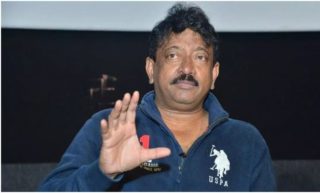
Ram Gopal Varma, the renowned Indian filmmaker, has once again found himself at the center of a media storm. His recent tweet regarding the tragic murder of NCP leader Baba Siddique has ignited a fierce debate, sparking discussions on a range of issues, from celebrity culture to the state of law and order in India.
Varma’s tweet, while seemingly innocuous at first glance, has far-reaching implications. He suggested that the gangster involved in the murder is under government protection, and he made provocative statements about Lawrence Bishnoi, the alleged mastermind behind the killing. Bishnoi, known for his long-standing grudge against Bollywood superstar Salman Khan, has been accused of orchestrating the murder as a form of revenge for an incident that occurred decades ago.
The filmmaker’s tweet has drawn significant attention, not only for its content but also for the implications it carries regarding crime and politics in India. Varma’s narrative, which he describes as “cinematic,” paints a picture of a young boy who, driven by a grudge over a deer’s death, grows up to become a ruthless gangster capable of murder. This seemingly absurd scenario has sparked discussions about the intersection of crime and celebrity culture in India, as well as the role of law enforcement in addressing such issues.
Varma’s comments have undoubtedly raised eyebrows and sparked controversy. While he may be exercising his right to freedom of expression, his statements have the potential to influence public opinion and even have legal ramifications. As the situation unfolds, it remains to be seen how Varma will respond to the backlash and whether any legal repercussions will follow.
The incident serves as a reminder of the delicate balance between freedom of expression and social responsibility that public figures must navigate. In an era where social media amplifies voices-both for good and ill-Varma’s comments highlight ongoing tensions surrounding crime, celebrity, and accountability in contemporary India.